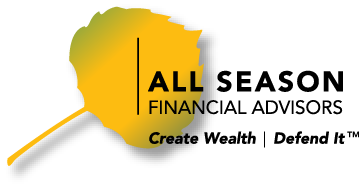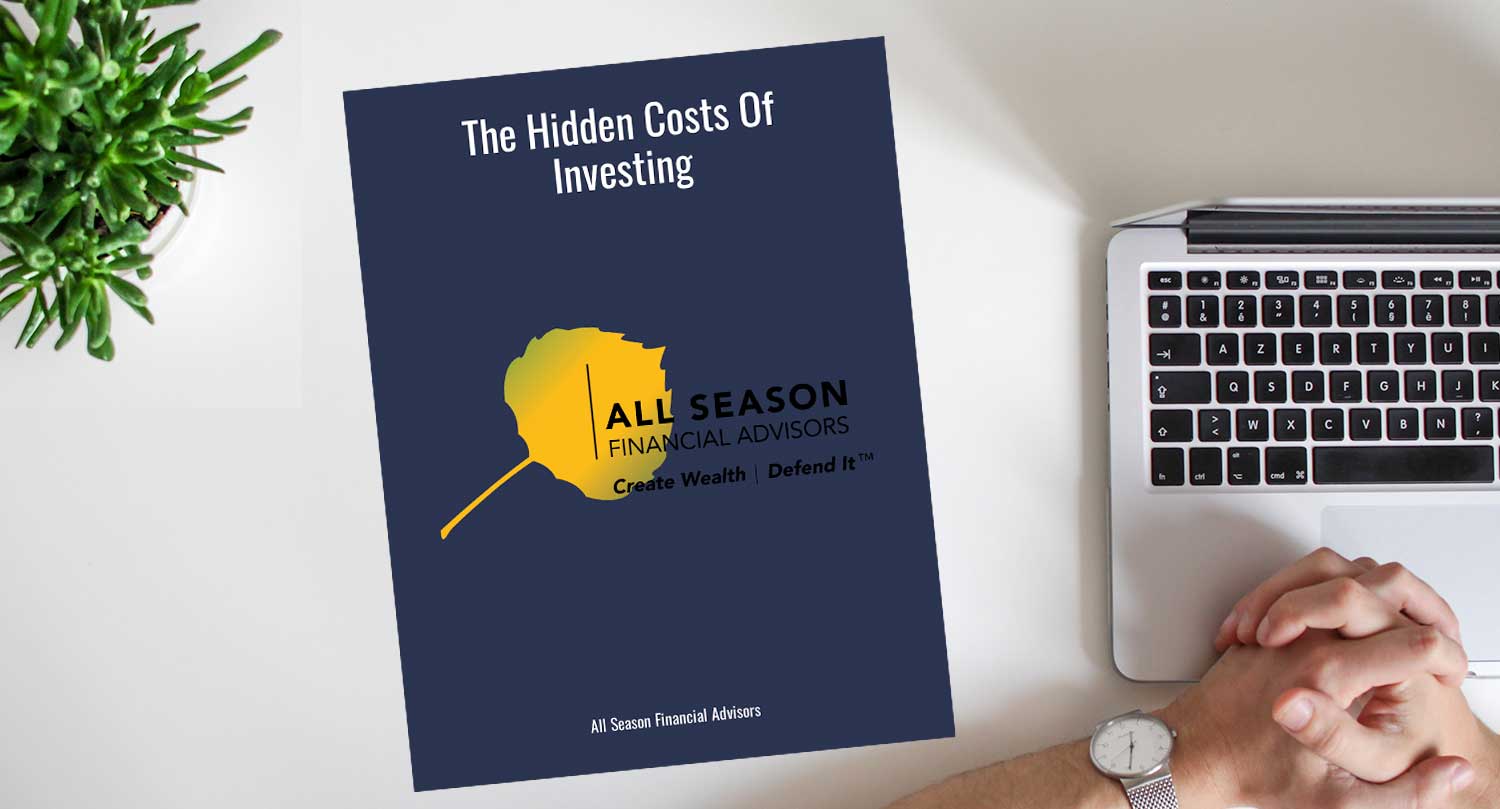Having recently completed our latest round of client reviews with households from many different walks of life, I found myself hearing and answering the same comments and set of questions. These are relevant and timely questions in light of market conditions and performance over the last 18-20 months. All of our clients should spend some time with this important update.
Comment – “I Haven’t Made Much Money in the Last Two Years”
For most portfolios, in aggregate, that situation is real and largely accurate. Of course, everyone’s situation is different depending on whether or not you are adding or withdrawing money and your strategic allocation among our strategies. But for the most part, returns have been flat, even slightly down for many of our client households for almost two years. That feels like a long time and certainly, it begs a few questions like, are we doing something wrong or why am I paying management fees if I’m not making money. Said another way, there seems to be an expectation that paying a money manager means that you will make money all the time. Last week, we talked about the value of risk management and the realities of market drawdowns, changing asset class performance, etc. For this update, we’ll add to that discussion by setting expectations (or reminders for most) for upside returns in difficult markets.
You must recognize that there are long periods of time when stocks simply fail to move higher. We have been in one of those flat spots. For most broad domestic and global stock indices, it began on July 3rd, 2014 (678 calendar days ago). Yes that is about two years ago. The S&P 500 and the Dow Jones Industrial average are up a total of 3.6% since July of 2014 but neither are broad market indices. The Dow is made up of only 30 stocks right? The bulk of global stocks and stock indices are actually down 7-8% since July 3rd of 2014. Here’s a chart showing the NYSE index (red), the Dow Jones Global stock index (green) and the Russell 2000 small cap index (yellow).

I have marked the date of July 3rd, 2014 for reference as the beginning of our current global stock market “Flat spot”. Also, you should know that losses through yesterday include a very strong and healthy advance off the lows in February, 2016 when several benchmark stock indices formally experienced bear market losses of 20% or more. Is there more downside to come? Or was that the end of the garden variety bear market we’ve been talking about since 2014? At this point we don’t know honestly, but we will have an answer by summer time.
Now to the question of why we have not made money for as long.
Should we be expected to make money, earn returns, in this type of negative investing environment as risk-focused money managers?
The answer is no – although that outcome is still possible and has happened in the past (2000-2003 for instance). Our job as risk managers is to assess market conditions daily following more than 20 different technical and fundamental pieces of data to determine our Net Exposure for our various strategies. In difficult and unproductive markets like these, we will naturally adjust our net market exposure to carry more cash, lean on defensive holdings and play solid defense.
Plainly stated, for long stretches of time over the last couple years, we have not tried to make returns as much as worked to protect your hard earned investment capital.
When conditions improve, we’ll be there to take advantage of healthy return opportunities. But for now and for the last seven quarters, opportunities have been thin and risk has been high.
I’ll give you a close up example with an illustration using our flagship All Season strategy (red) compared to our benchmark, the Dow Jones Global Stock Index (green) to show you the value of what we’re doing.
The beginning of 2016 was the worst start of any year in stock market history. Yes that’s a fact, we made history this year but not in a good way. Stocks opened the year, falling nearly straight down 10% and made a final dramatic low on February 11th, down 12%. Going into 2016, our net exposure screen had already moved us into defensive mode with nearly 50% cash and non-correlated holdings. The All Season strategy at it’s very worst on February 11th was down a total of -4.38% including a full quarter of management fees netted out. Subsequently, we got back in the driver’s seat as our systems quickly switched back to adding net exposure (buying) and we’ve enjoyed a nice ride higher since.

This is what we do. We adjust our holdings according to market conditions finding that balance of downside risk control as well as upside opportunity. Over time, this disciplined process yields solid results with real wealth accumulation. Here’s the long range picture of our All Season strategy (net of any and all fees) versus the same Dow Jones Global Stock index benchmark with the clear performance advantage going back to December of 1997. By the way, you won’t find many in our industry with a verified performance track record going back that far. We are a proud few.
Investing requires a high degree of patience. Two years of no returns, even slight losses, is not a problem as these periods of time also tend to reset value and create new highly profitable return opportunities. I think we’re almost there but that’s another discussion.

Question – Should I Shift My Accounts Into the Income strategies?
The situation is this. Our Income models are making all time new highs now as one would expect while stocks are under pressure. We have two such strategies. One is designed for retirement accounts, the other is designed to be more tax efficient for taxable investors, called Freeway High Income. Freeway has been doing especially well of late given it’s very large exposure to high yield municipal bonds which are appreciating at a healthy clip of 9% annualized on a total return basis. Both income models were relatively unproductive in 2015 but have shot higher since the start of 2016 and remain fully invested in combinations of corporate bonds, investment grade and junk grade, preferred securities, emerging market debt, municipal bonds, TIPS and Build America Bonds. All are in strong uptrends. Pictured below is our Freeway High Income Strategy since global stocks went flat in July of 2014.

Back to the question – Should you move your accounts into this Income strategy?
We don’t like to make strategy changes within a portfolio unless there has been a significant life change related to finances, like death, divorce, inheritance, business sale or retirement to name a few. We understand the interest in moving accounts into strategies that are making all time new highs but in effect this is return chasing and generally a bad practice from a strategic allocation perspective. Instead we lean on our client profiles to help keep your money balanced appropriately through your various stages of life.
How do we do that?
We have four client profiles established in our firm with prescribed portfolio allocations among our various strategies. These are based on your age, situation, goals, preferences and risk tolerance etc. All of our client profiles can be viewed on our company home page (Plant, Grow, Cultivate and Harvest profiles). You might take a look if you haven’t been exposed to this information as a client – or need a reminder.
There are two conditions now where we might justifiably increase your exposure to our Income strategies. The first is that you don’t have any exposure to Income strategies for whatever reason. Certainly in this case, we’d like you to consider that as all of our profiles have SOME income allocation. The second reason might be that you have a pile of cash sitting in the bank earning nothing and you want to make that money more productive. In this case, we believe there is a compelling reason to consider adding to, or opening, an account in our Freeway high Income strategy. The current annualized return of Freeway is 8.87% net of all fees. That’s better than zero.
Next week, I’ll try to answer a few more recent client questions as I may have exhausted you for today.
Cheers
Sam Jones

